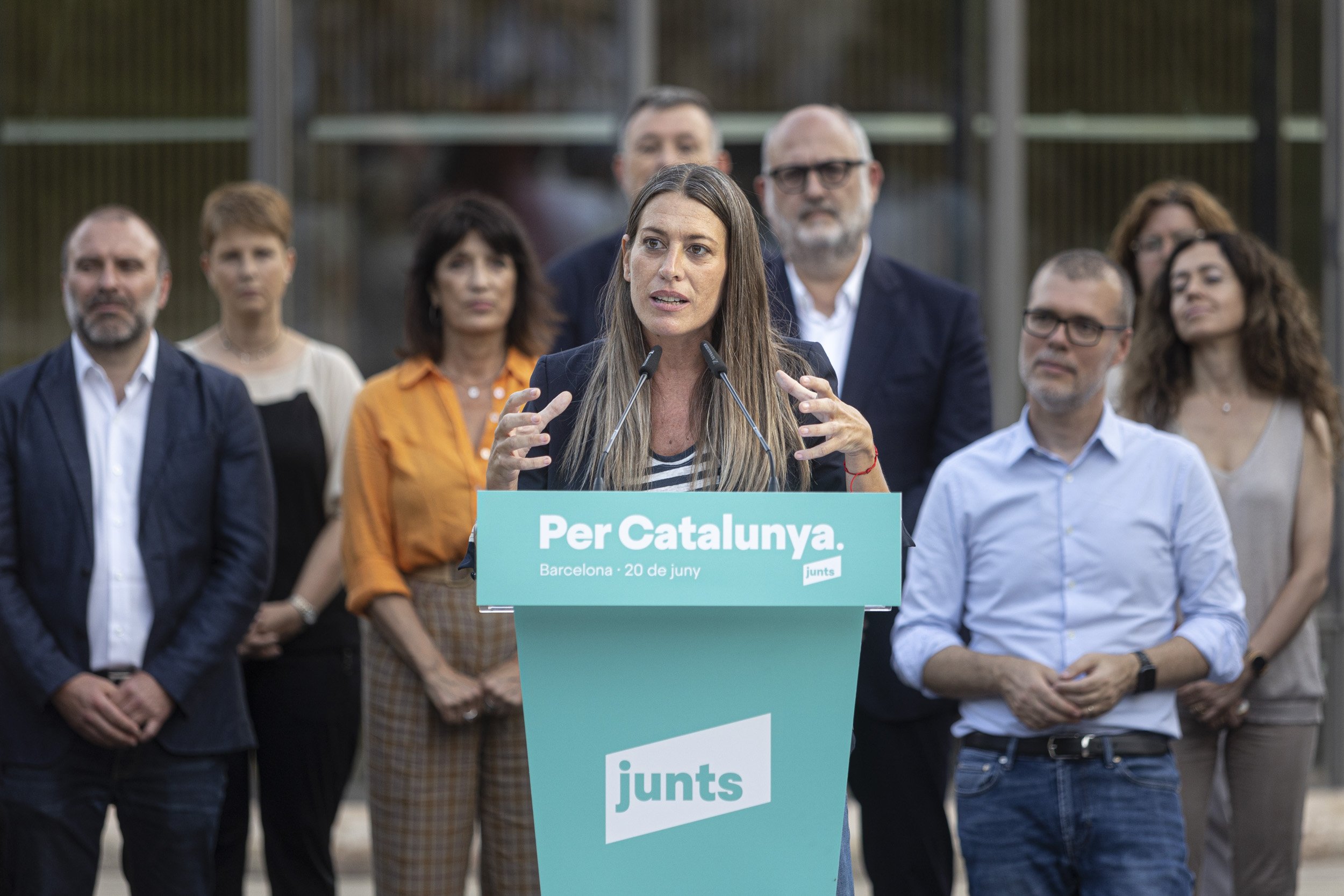Spain's Central Electoral Commission (JEC) has ruled in favour of the Catalan European Democrat Party (PDeCAT) and has granted it 100% of the electoral rights of Together for Catalonia (Junts) for the general election on 23rd July, which affect access that each party will be given to media times and spaces during the election campaign. The contention between the two Catalan pro-independence parties is a result of the formal creation of Junts as a new party, through a split with the PDeCAT, in 2020, that is, since the last Spanish general election, and the JEC's decision is that the rights will not be shared, but will go entirely to the PDeCAT. Junts's first response to the electoral board's announcement came from the head of the party's list in Congress, Míriam Nogueras, who acknowledged that they are used to such moves: "This is not in our interest, but we will get to work. We have many channels that reach thousands of people." In an interview this Thursday on the radio programme El món on RAC1, Nogueras criticized the JEC's decision and stated that "we are sure that we will not go unnoticed".
Junts does not expect a change in the JEC's decision
Míriam Nogueras acknowledged that she does not expect the JEC to go back on its decision and give them back 50% of the rights, which had been granted to them by the Barcelona Electoral Commission before a PDeCAT appeal to the more-senior central body reversed the decision. Nogueras explained that the Junts legal services are studying whether they can appeal, although they have no great expectations. She stated that "we will not dwell on our problems, but rather, we are interested in the campaign that we will present on Monday". Nogueras recalled that they found themselves in the same situation as in the 2019 European elections "where president Puigdemont gained a great victory, despite having no electoral rights". In this regard, she asserted that "the Junts results will not depend on the banners we hang up" but she asserted that "people will hear and see them".
Regarding the presence of Junts in electoral debates on public television, Nogueras acknowledged that she does not yet have information on this matter, but reiterated that "we must talk about people's problems, and not so much about the problems a party has with the JEC". In fact, Spanish public television RTVE has just announced an electoral debate to be held on July 13th, featuring the parliamentary spokespeople of the PSOE, Vox, Sumar, Catalan Republican Left (ERC), the PNV and Bildu. The absence of Junts, however, is because they, like the PDeCAT or the CUP, lack a parliamentary group of their own in Congress; also absent is the PP, a fact which is attributed to the refusal of Alberto Núñez-Feijóo to take part in the meeting to organize these debates.
Why does Junts downplay the JEC's decision?
Sources from Junts have shrugged off the impact that this decision adopted by the Central Electoral Commission may have, and detail that it will not affect their participation in the electoral debates on Catalan public broadcast media nor in the news spaces that correspond to the party because they are considered as a "significant group". In fact, there is a precedent in this regard: in the elections to the Parliament of Catalonia on February 14th, 2021, Junts ran without electoral rights that were left to the PDeCAT after the party schism, and the latter party presented Àngels Chacón as candidate. Despite this decision - also made by the JEC - party candidate Laura Borràs was able to participate in the electoral debates organized by Catalan public media. The other side of the coin was that, despite appearing in the coverage plan of these publicly owned entities, the news coverage allocated to them was less than that of the CUP and the People's Party, the parties with least representation in Parliament between 2017 and 2021; while the PDeCAT maintained the coverage levels that were proportionate to the 34 MPs that the Junts per Catalunya coalition had in that legislature.
In parallel, the decision to consider that Junts as well as Vox were "significant political groups" in those Catalan elections is based on an instruction from the Central Electoral Commission itself. It ruled prior to the 2021 Catalan election defining as "significant political groups" those parties standing that "despite not having appeared in the previous electoral equivalents or not having obtained representation in them, have subsequently, in recent electoral processes and in the territorial scope of the broadcasting medium, obtained a number of votes equal to or greater than 5% of the valid votes cast". The party can also, if it wishes, appeal the decision to the Supreme Court.
"You have to read what you sign"
Meanwhile, the head of the PDeCat list, Roger Montañola, also spoke about the decision of the JEC, pointing out that the resolution is in line with the document that Junts and PDeCat signed in 2019, and "now there will people looking for three legs on the cat", he asserted in reference to Junts. In this regard, he took the opportunity to remind Nogueras's party that they need to read what they sign, that "in this country, crying and playing the victim come for free", although he insisted that the document signed by the two parties already stated that the electoral rights were left in the hands of the PDeCat. Regarding the presence of Junts in the electoral debates, Montañola assured that their Catalan rivals will be there, and he celebrated it because he wants to confront Míriam Nogueras: "I will not hide".

